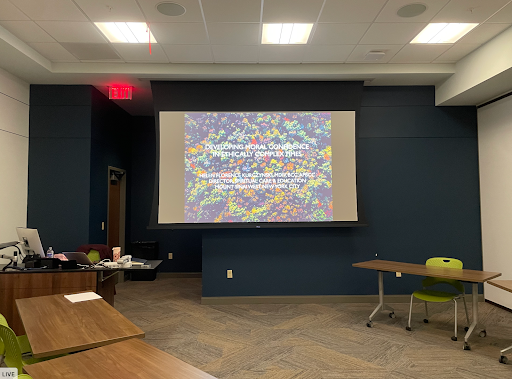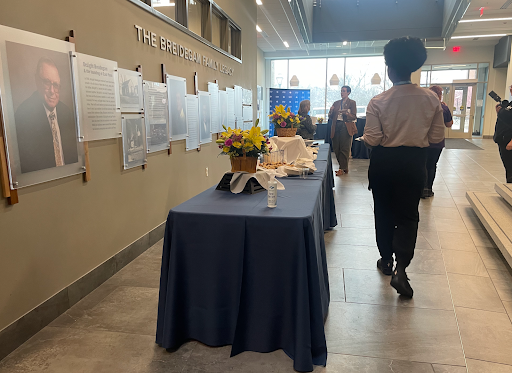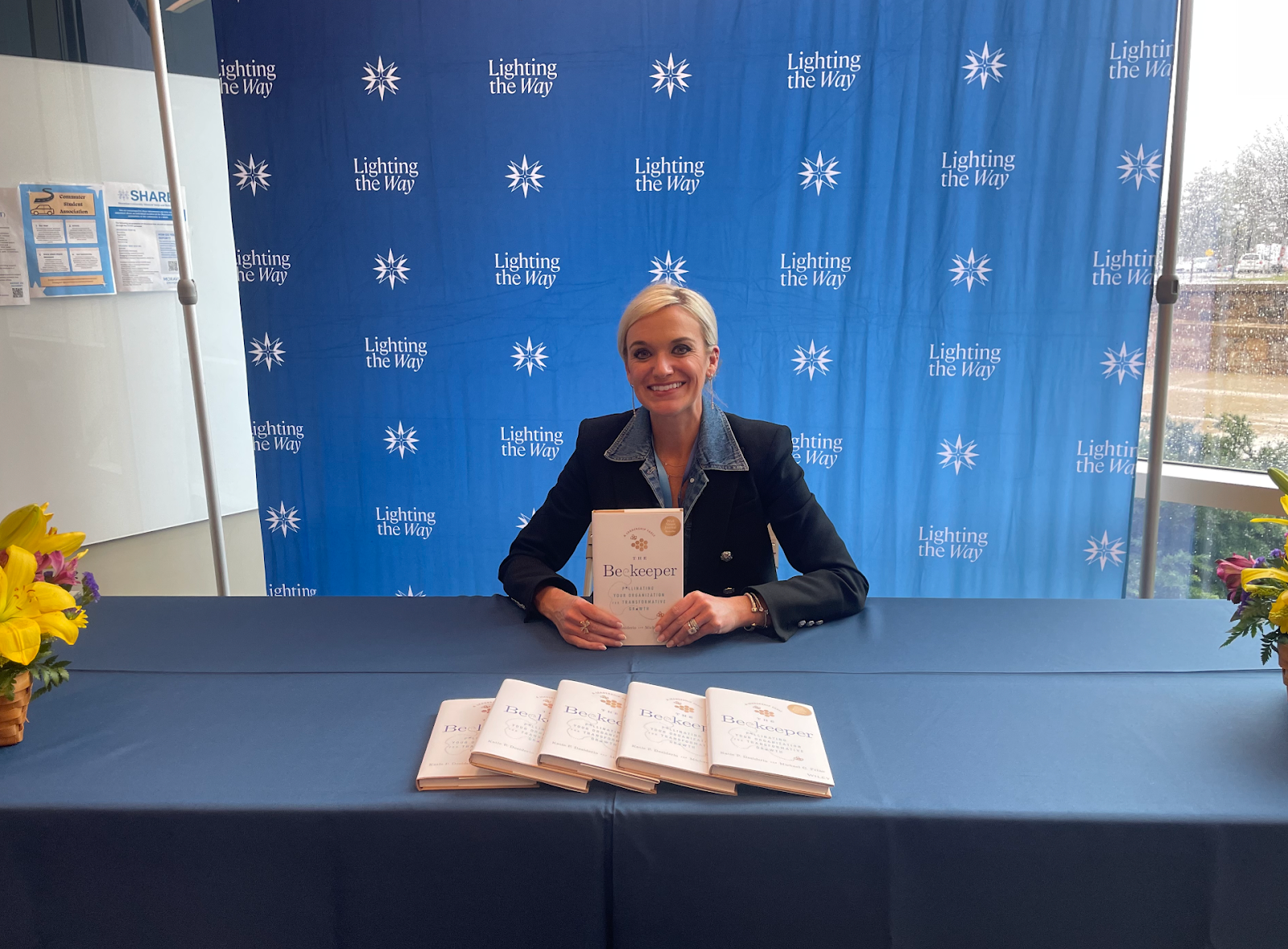
This year’s inaugural Founders Forum symposium was held on a rainy Saturday in the Sally, where female Moravian students, faculty, staff, and alums gathered to network and celebrate strong female leadership.
The event began at 9 a.m. with a continental breakfast before the “Women Leading Women” keynote address by Melissa Ludwig ‘80 began at 10 a.m.
The keynote focused on the challenges women face in male-dominated industries, gender bias, building networks, building a personal brand, and self-promotion.
The first professional development breakout session occurred after 11 a.m. With three sessions being hosted, guests could select from “Developing Moral Confidence in Ethically Complex Times,” hosted by Helen Kurczynski S’17; “Look Within: Lead with Your Values,” by Katie Desiderio; and “Unlocking Opportunities: Leveraging Your Network for Success,” by Genesis Ortega ‘13.

“Developing Moral Confidence in Ethically Complex Times” addressed the challenge of staying true to your morals in leadership positions and the workplace.
The session began with participants writing down the groups and cultures that they participated in.
“Think widely. Starbucks is a culture. YouTube is a culture, your friends, your family, your spouse’s family, your ex-spouse’s family,” said Kurczynski. “You may find that there are subgroups within your groups, subcultures within your culture.”
Each group has a set of rules that one must follow to be a member of that group. There is a personal piece where our morals are involved.
Kurczynski discussed moral injury and the moral injury spectrum. This spectrum begins when two of your cultures rub together or your morals clash with the set of rules within a group, she said. Moral distress begins when these conflicts begin weighing on one’s mind. This is the point where people make decisions. Moral injury is the point where an individual becomes incapacitated.
There are ten symptoms of moral injury: guilt, shame, betrayal, loss of trust, loss of meaning, self-condemnation, difficulty forgiving, religious struggles, and loss of faith.
By building moral strength and confidence, one can work to avoid being faced with moral injury.
Habits can be implemented to counteract the symptoms of moral injury such as self-validation, forgiveness, support, and religious strength.
For each self-doubt placed on yourself, Kurczynski recommends counteracting that with three praises. These praises should come from within rather than seeking external validation. One should also equalize oneself and others. By separating individuals from their actions, one can sympathize, understand, and forgive others for their actions.
Most importantly, one must guide their actions based on their morals and values and consider the consequences of their actions straying from them.

After the first breakout session, a lunch and networking session took place. Attendees were able to sit at a table according to the topic card placed at the center. These topic cards guided discussions at the table and allowed for discussion and networking to occur.
After lunch, the second breakout session began. “Look Within: Lead with Your Values’ discussed being ‘proximal,” which is a medical term meaning to be close to the center.
To be proximal, someone keeps themself and others at the center of their growth by leading with their morals and values.
Desiderio led the group through the process of defining their STAR system, the core individuals that one relies on, and that help guide their values. These are the people that one checks in with to provide reflection and outside perspective of their actions and decisions.
To remain true to one’s values, Desiderio says they should respond to external stimuli by putting aside their emotions and communication solutions as well as be open to feedback. One should use lateral thinking to make inquiries that lead to reasonable solutions.
People have to be willing to take risks and enter a beginner’s mindset for growth to occur.

“We have to unlearn behavior to shift our mindset and allow for growth. [My] book [Beekeeper] was a space for me to move out of my comfort zone,” said Desiderio.
As leaders, individuals need to check in with themselves.
“Do you know XYZ about yourself? If not, you don’t know how you’re impacting at the group level,” Desiderio said.
Desiderio says to be a strong leader; one must remain true to oneself and their individual growth while relying on your STAR system.
“Unlocking Opportunities: Leveraging Your Network for Success” discussed utilizing your professional network by maintaining valuable connections, utilizing effective networking techniques, and leveraging your network for personal and professional growth.
After the second breakout session, the event began drawing to a close, with participants being able to get desserts and mingle while Desiderio had a signing for her book, The Beekeeper: Pollinating Your Organization for Transformative Growth.







